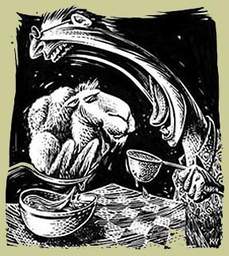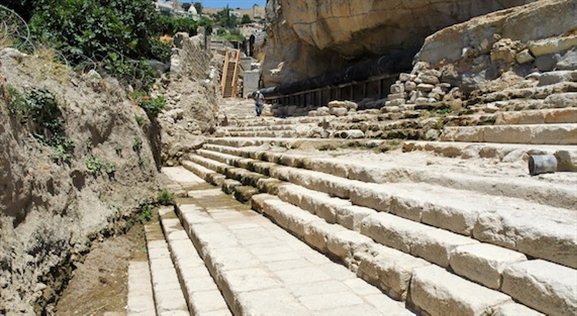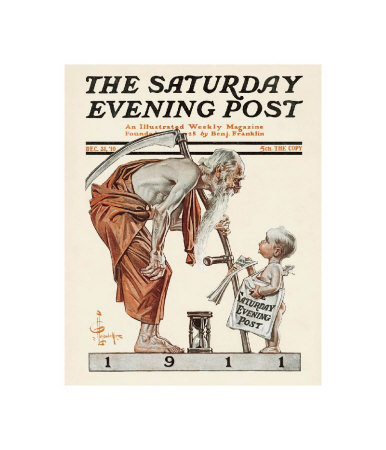Background Passages: Matthew 23:23-24; 2 Timothy 1:7
I don’t much like weeding the garden. Well, that’s not exactly true. I hate weeding the garden.
Recognizing it needs to be done from time to time, I started in one small corner and began pulling up the blanket of milkweed that covered the topsoil. Painstaking and boring. I finished a 10-foot section of ground and looked back on what I had accomplished. All the milkweed was gone. Yet, there in the middle of the flowerbed I just cleared stood a very proud, 18-inch dandelion with a bright, yellow flower on top. So focused on the little weeds, I missed the big, ugly one right in front of me.
I wonder if that was what it was like for the Pharisees as they settled into their comfortable lives. So focused were they on complete obedience to the letter of law that they missed its intent. So comfortable in the routine of religion, they ignored the needs of a lost world, never practicing what they preached.
In other words, they laboriously pulled the milkweed, but ignored the dandelion. Jesus’ call to righteous living put a spotlight on the dandelion.
In the last days of Jesus’ ministry prior to his journey to the cross, we find him spending more and more time grounding his disciples in the deepest fundamentals of faith. The more he talked about the kingdom of God, the more his opponents protested, pressured and plotted to eliminate him.
Instead of a concentrated effort to discern the truth the Pharisees made a concerted effort to discredit every word he spoke. They picked at the minuscule and ignored the material. A master of hyperbole, Jesus challenged their hypocrisy. The religious leaders of the day took great care to cross every “t” and dot every “i” in their quest for religious piety. So focused were they on the legalities of religion, they missed the point of faith.
Jesus acknowledged that they regularly gave their tithes of mint, dill and cumin, but he chided them for failing to practice the important matters of the very law they claimed to obey. Where is justice? Mercy? Faithfulness? “You should have practiced the latter without neglecting the former.”
Jesus took them to task for their improper perspective. “You blind guides! You strain out a gnat, but swallow a camel.”
Had I been standing next to Peter and John that day, I’m pretty sure the snicker I failed to choke back would have drawn an ugly glare from the closest Pharisee and a pained glance from Jesus that said, “Really? That’s your contribution to this debate?”
What a powerful commentary Jesus made with a tongue-in-cheek comment. It is a brilliant analysis of the problems preventing the Pharisees from accepting the new truth Jesus brought to the world. They were so driven by the principle of not eating what they deemed unclean that they would use a cloth to strain their drink to make sure they would not accidentally consume the tiny, filthy insect. Yet, they never seemed to see the camel they swallowed whole.
Had I been walking next to Jesus later that afternoon, I suspect I might have apologized and rationalized my inappropriate behavior. “I’m sorry, Jesus, but that was a good line. Pretty funny. Did you see their faces?”
I think Jesus would have put his arm around me and said with a rueful smile, “It might have been funnier if it weren’t also true in your life, too, my friend.” As my mind reeled, I’d hear something about ignoring the 4” x 4” beam in my own eye.
I am, at times, guilty of the same Pharisaical behavior. The Pharisees practiced their faith. They made dedicated effort to comply with the ritual and rules, focusing in extreme measure on the “thou shalts” and the “thou shalt nots,” while spending precious little time on the “love thy neighbor.” Being right was a higher calling than doing right. I may not always be that different.
You and I live in a time when it’s fashionable to be hypercritical. To declare ourselves politically and socially holier than thou. You and I live in a time when pronouncing our truth rides roughshod over proclaiming his truth. When we love the sound of our own voice rather than seeking to sound the voice of love. Such arrogance drives people away from the very one to whom our deeds and our words should point and proclaim.
It’s easy to play the Christian card in a world struggling to do what’s right. Attend church every week. Sing a few songs. Sit through the sermon. Study his word in Sunday School. Gather up a few old clothes to give to the poor every now and again. Now, somehow, I’m better that that other poor soul. It’s not that these things are wrong. Like Jesus reminded the Pharisees, these are things that should not be neglected.
However, when we focus on the “things” of our religion to the exclusion of the crucial matters of our faith…justice, forgiveness, love, compassion, truth…
…we become critical rather than encouraging…
…we divide rather than bring together…
…we falsely elevate our standing in the eyes of God, and…
…we fail in the deeper call of Christ.
We wonder all the time how the Pharisees could be so obtuse, time and time again failing to recognize the truth of Jesus’s words because they threatened to push them out of their comfort zone. The truth is they lived in fear of the kingdom of God that Jesus personified. It upset their apple carts and threatened to pull down their carefully constructed walls that isolated them from a world in need.
Jesus tells them, “You put on a good front. Make a good show of things. But, your heart cannot see what I see. Until it does, you will continue to go through the motions, critical of those less “pious,” feeling safe and comfortable within the walls you built around you.
“Until you see the world through my eyes and move past the ritual and routine, you’ll keep straining that gnat and eating that camel.”
Jesus calls me to keep doing those things I ought to be doing, but to focus on what matters most. I must set aside the fear that keeps me from embracing in love a world that knows no better way. I need to step outside my comfort zone. To challenge what I believe and dig deeper until God teaches me the next thing I need to know to become more like him. Fear stared the Pharisees in the face and gripped their hearts. It does the same to me at times.
When he needed to encourage Timothy, the young pastor of Ephesus, Paul reminded him,
“God did not give us a spirit of timidity and fear, but a spirit of power, of love and of self-discipline.”
I also find that encouraging. My ability to move past the trappings of religion and into a full expression of faith rests not in my own ability, but in the power of God through his spirit within me. My desire to love others will not come from the goodness of my own heart but from a realization of sacrificial love and mercy God extends to me every day. My desire to see the needs of those around me and to, therefore, act, comes from the discipline to be more like Christ every day in every way.
I don’t know if you feel the same way at times, but, if we assume we’re doing pretty well at filtering out our gnats, maybe it’s time we both strain the camel.








